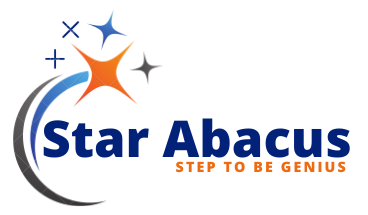How abacus is good for brain ?
The use of an abacus can provide several cognitive benefits and contribute to the development of various brain functions. Here are some ways in which using an abacus can be good for the brain:
1.Enhanced Mental Calculation Skills: Using an abacus requires mental calculation skills, as users must visualize and manipulate numbers in their minds while moving beads on the abacus. This process strengthens arithmetic abilities, including addition, subtraction, multiplication, and division, improving overall numeracy skills.
2.Improved Concentration and Focus: Operating an abacus involves focusing attention on the task at hand, which can help improve concentration and attention span. As users perform calculations on the abacus, they develop the ability to maintain focus for extended periods, which can transfer to other areas of life.
3.Spatial Awareness and Visualization: Manipulating the beads on an abacus involves spatial awareness and visualization skills. Users must mentally track the position of beads and perform calculations accurately, which enhances spatial reasoning abilities and the ability to mentally visualize mathematical concepts.
4.Sequential Thinking and Problem-Solving: Using an abacus encourages sequential thinking, as users must follow a step-by-step process to perform calculations. This promotes logical reasoning and problem-solving skills, as users learn to break down complex problems into smaller, more manageable steps.
5.Memory Enhancement: Regular practice with an abacus can improve memory retention and recall. Users memorize patterns and techniques for performing calculations efficiently, which strengthens memory skills. Additionally, the repetitive nature of using an abacus can reinforce memory through consistent practice.
6.Hand-Eye Coordination: Operating an abacus requires coordination between the hands and eyes, as users move beads and track their position on the abacus frame. This helps improve fine motor skills and hand-eye coordination, which are essential for various tasks in everyday life.
7.Brain Plasticity and Neuroplasticity: Learning to use an abacus can promote brain plasticity, the brain’s ability to reorganize and adapt in response to new experiences and learning. Regular practice with the abacus stimulates neural pathways associated with mathematical processing, leading to long-term changes in brain structure and function.
Overall, the use of an abacus can provide a holistic cognitive workout, stimulating multiple areas of the brain involved in mathematical reasoning, memory, attention, and coordination. By engaging in regular practice with an abacus, individuals can develop and strengthen these cognitive skills, which can have long-lasting benefits for academic and cognitive performance.
